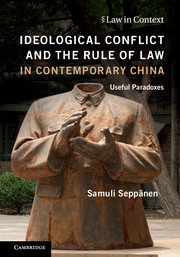Book contents
- Frontmatter
- Dedication
- Contents
- Foreword
- Preface and acknowledgments
- 1 Introduction
- 2 Setting the stage
- 3 Ideological cynicism meets theoretical skepticism
- 4 Useful paradoxes: the conservative socialist ideological position
- 5 Thick mainstream, thin liberalism and vice versa
- 6 Avant-garde renewal and nostalgia
- 7 Conclusions
- Textbook answers to the questions in Chapters 1–6
- Bibliography
- Index
5 - Thick mainstream, thin liberalism and vice versa
Published online by Cambridge University Press: 05 July 2016
- Frontmatter
- Dedication
- Contents
- Foreword
- Preface and acknowledgments
- 1 Introduction
- 2 Setting the stage
- 3 Ideological cynicism meets theoretical skepticism
- 4 Useful paradoxes: the conservative socialist ideological position
- 5 Thick mainstream, thin liberalism and vice versa
- 6 Avant-garde renewal and nostalgia
- 7 Conclusions
- Textbook answers to the questions in Chapters 1–6
- Bibliography
- Index
Summary
Which of the following statements about the relationship between law and morality is incorrect?
A.Law is characterized by the duality of rights and duties, whereas morality only values duties.
B.The compelling force of morality is spiritual.
C.Marxist legal thought holds that the one-sided prioritization of the stability of law is a mistake.
D.Law mirrors an abstract form of morality.
–Preparatory Material for the National Civil Service Examination, 28.Introduction
The aim of this chapter is to demonstrate the potentially destabilizing effects of theoretical paradoxes, contradictions and conflicts in rule of law scholarship. To this end, the chapter is built around two specific narratives about the rule of law. First, there is the narrative of ever-expanding and ever-thickening rule of law conception, which mainstream Chinese legal scholars have used to great effect to establish a notion of continuous expansion of the autonomy of the law and rights protections. These scholars justify the expansion and thickening of the rule of law with regard to a deepening value consensus. Some of them describe the rule of law as an inherent part of the civilization process or of modernization; others see it as an element of the expansion of the “humanistic spirit”; and yet others associate it with a “faith” in law that has emerged in the course of human history. In order to illustrate this mainstream narrative, this chapter makes excursions into the writings of two well-known Chinese law professors. First, it describes legal theoretical strategies adopted by Professor Wang Liming. Wang is an eminent figure in the development of Chinese civil law and is perhaps best described politically as a liberal-leaning centrist. Second, it examines the development of rule of law theories in the scholarship of Professor Li Buyun, a well-known specialist on constitutional law. Professor Li's work spans the Marxist political theory of the 1970s, the professionalization of the legal discourse in the 1980s, the human rights ideology of the 1990s and the turn to neoconservative values in the 2000s. Analyzed together, Wang and Li's texts illustrate the various argumentative strategies through which mainstream legal theorists have pushed the boundaries of autonomy of law to new fields.
- Type
- Chapter
- Information
- Ideological Conflict and the Rule of Law in Contemporary ChinaUseful Paradoxes, pp. 104 - 133Publisher: Cambridge University PressPrint publication year: 2016



